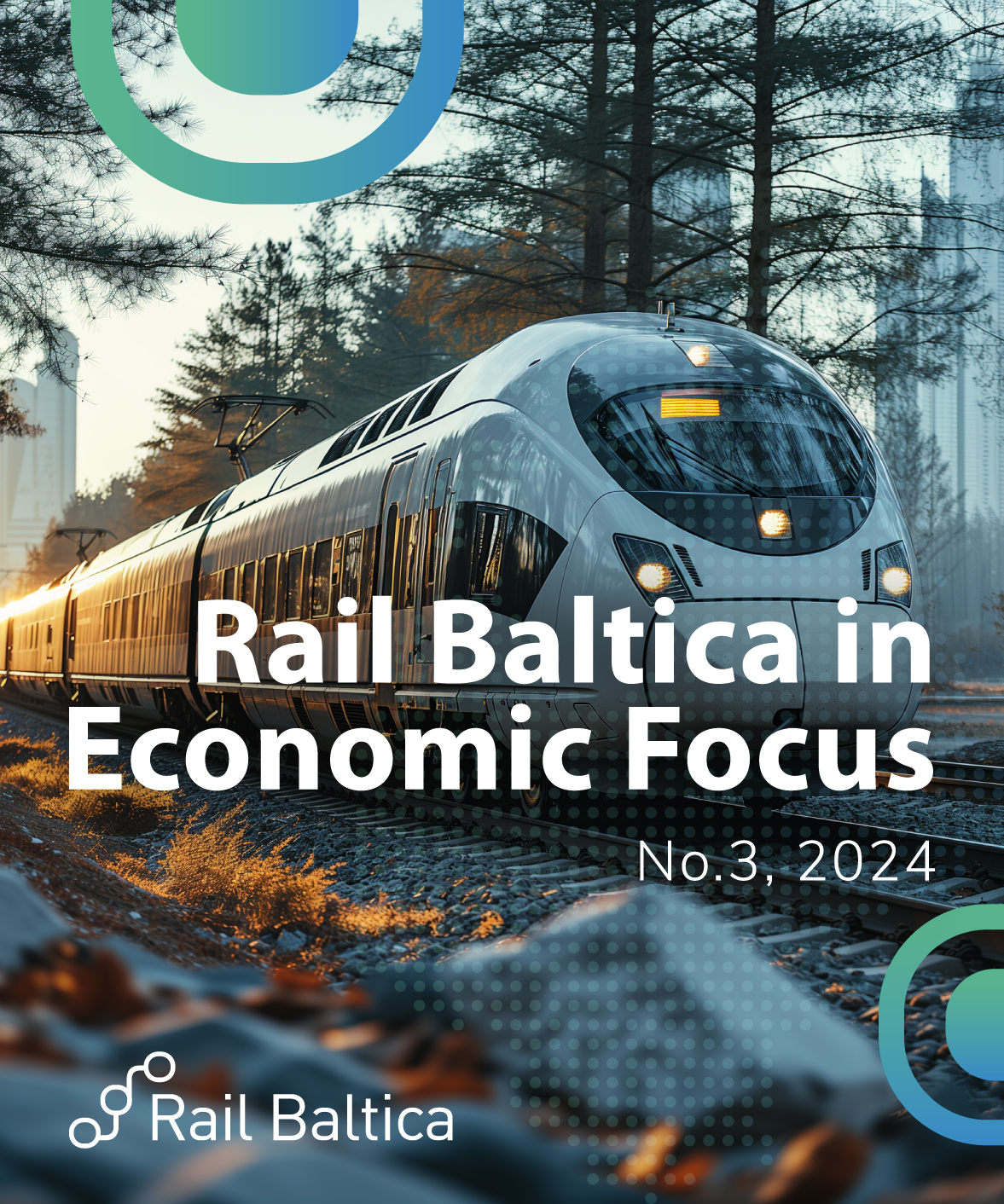The third edition of the digital outlook, “Rail Baltica in Economic Focus,” has been released, offering a comprehensive view of trends within the railway industry and its associated sectors. This latest edition focuses on providing expert insights into Rail Baltica while discussing important topics shaping the future of rail transportation in the Baltic region.
Kristīne Malnača, Head of the Global Project Strategy and Economics Department at RB Rail AS, noted, “Urbanization, an aging population, and sustainable transport policies drive the need for the efficient integration of railway infrastructure into the multi-modal transport system, positioning it as the future mobility backbone. Success requires progress in service quality, capacity, reliability, life cycle, energy costs, and interoperability within the railway sector all with the same goal: the end user in mind. This is what our attention is devoted to in this issue.”
 The third edition of “Rail Baltica in Economic Focus” features expert insights on several key topics, including:
The third edition of “Rail Baltica in Economic Focus” features expert insights on several key topics, including:
- The relationship between the introduction of new rolling stock and increased passenger demand in the Baltics, exploring how new rolling stock integrates into the existing railway network and impacts passenger demand.
- The role of high-speed railway infrastructure in regional development and spatial economics, discussing how high-speed railway infrastructure can extend economic growth beyond urban hubs to intermediate towns.
- Insights into fluctuations in material prices and their implications for infrastructure projects, providing analysis on material and construction quarterly prices.
- Promoting sustainability and strengthening climate resilience in European transport infrastructure, highlighting Rail Baltica’s initiatives toward resilience and decarbonization in response to the growing climate crisis.
“Rail Baltica in Economic Focus” serves as a platform to inform and engage stakeholders, offering analysis of trends and developments within the rail and related industries. Moreover, it presents perspectives on how Rail Baltica can contribute to economic growth in the region.
By bringing together insights from Rail Baltica strategy experts, transport economy analysts, logistics specialists, and industry experts, the outlook aims to foster dialogue and drive collective action toward a sustainable and integrated future for rail transportation in the Baltic states.
